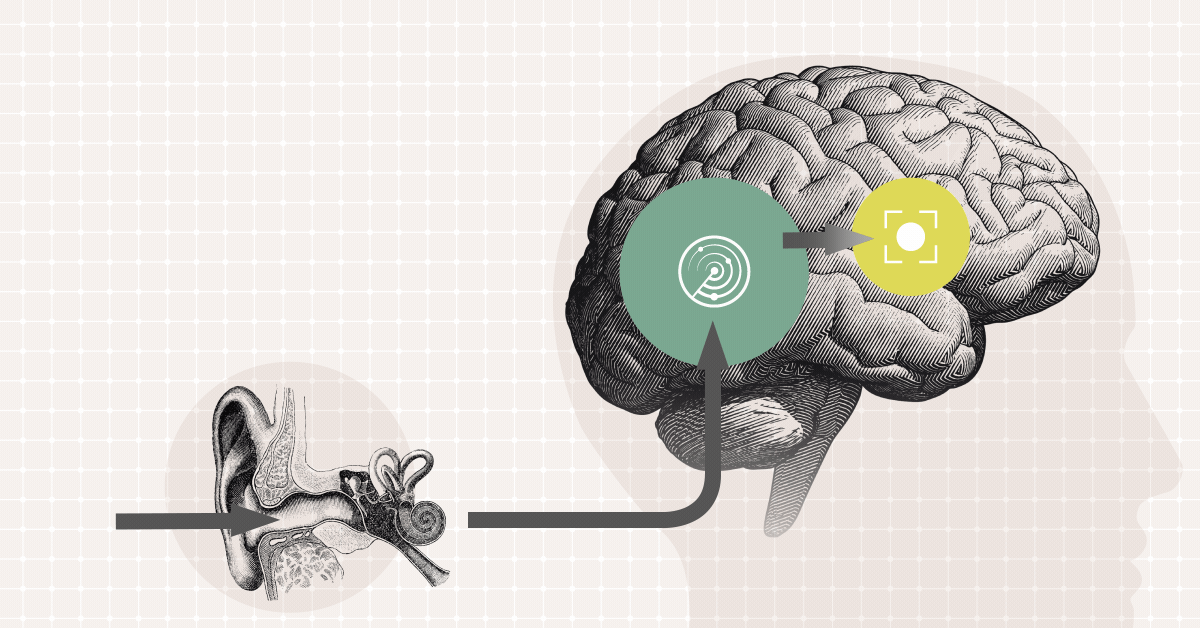There has been a technological revolution in hearing aids. At Oticon, we think brain-first. See why this fundamental shift has huge effect for hearing aids and for your brain.
What do you want your hearing to be like?
It’s a question we seldom consider, but perhaps we should. After all, hearing is one of our major senses for connecting us to the world.
At Oticon, we think hearing should be as natural as possible and free from constraints. It should work the way nature intended – even if you have a hearing loss and need hearing aids. In fact, especially if you need hearing aids.

Why your brain plays an important part in your hearing
We also believe the key to better hearing is in the brain. Hearing is thinking, after all! Our ears gather sound, but it’s in the brain the sound is understood. In fact, the brain is our world’s best sound processor!
It makes sense then that your brain should get all the sounds around you. To get a sense of how important this is, consider the following example.
**********
Imagine you are out walking
You are with your best friend in a park, chatting about the day’s events. All of the sudden, you see another friend to the right, and turn to say hi, but your attention switches to the sound of running footsteps coming from behind you. Your brain tells you that a runner is about to pass, so you wait to approach your friend until the runner is well past you.
Now imagine you can't hear the runner’s footsteps, so you can’t switch your attention to the sound. You would have crashed into each other and both of you would have probably been startled and confused.
**********
Clearly, your brain work’s best if it gets the sounds all around you – just as nature intended.
This means good hearing aids shouldn’t simply make sounds loud enough. They should give your brain more access to all the meaningful sounds around you and help it naturally understand the sounds you hear.
Because our hearing aids do this, they require less efforti to understand sounds, which leaves more mental resources for other things like thinking and remembering.
We call this brain-first approach to making hearing aids BrainHearing™. Since 2010, it’s been at the foundation of everything we do at Oticon. And it’s a complete revolution from how the industry traditionally designs hearing aids.
The old ways of making hearing aids
Hearing aids used to be made ear-first. In fact, many still are.
This means they try to help you by trying to compensate for the hearing loss in the ear (increasing the volume) instead of optimizing the sound so it’s easier for the brain.
But this overloads the ears, so they reduce some of the sound – especially in noisy and crowded situations like cafes and family dinners. Typically, they cut out all the sound around you except for a narrow ‘beam’ where you are looking.
But cutting out the other sounds around you limit the stimuli coming to your brain. And without all the information about the sound around you, your brain can’t work the way it is supposed to. Your attention is restricted or ‘blinkered’ – so you can’t hear things like footsteps behind you
What’s more, whenever there are missing sounds, your brain tries to fill in the gaps by guessing. This is tiring, so it leaves your brain with less spare capacity for other things like remembering, and make socializing harderii – and socializing is vital to your brain’s health!
Brain-friendly hearing aids are the answer
The good news is that now we know better, and at Oticon we make brain-friendly hearing aids.
We now know that your brain needs access to all meaningful sounds – not just speech – in order to work in a natural way.iii
Then, when your brain has all the information it needs, it can naturally orient itself and then focus on what you choose.
This is the way the brain naturally makes sense of sound, so this is what our brain-friendly hearing aids are designed to help your brain do.
The results are impressive. Brain-friendly hearing aids can reduce the strain on your brain (the cognitive load), leaving you less tired.iv
They can also give you a more natural, pleasant, and balanced soundscape, instead of simply amplifying individual sound sources.
How would you like hearing like that?
See our brain-friendly hearing aids here
-----------------------------------------
i Juul Jensen J. (2019) Oticon OpnS Clinical Evidence. Oticon Whitepaper.
ii Pichora-Fuller, M. K., Kramer, S. E., Eckert, M. A., Edwards, B., Hornsby, B. W., Humes, L. E., ... & Naylor, G. (2016). Hearing impairment and cognitive energy: The framework
for understanding effortful listening (FUEL). Ear and Hearing, 37, 5S-27S
iii 1. O’Sullivan J, Herrero J, Smith E, et al. Hierarchical Encoding of Attended Auditory Objects in Multi-talker Speech Perception. Neuron. 2019;104(6):1195-1209.e3. doi:10.1016/j.neuron.2019.09.007
2. Puvvada KC, Simon JZ. Cortical Representations of Speech in a Multitalker Auditory Scene. J Neurosci. 2017;37(38):9189-9196. doi:10.1523/JNEUROSCI.0938-17.2017
iv Juul Jensen J. (2019). Oticon OpnS Clinical Evidence. Oticon Whitepaper